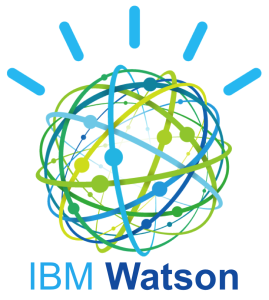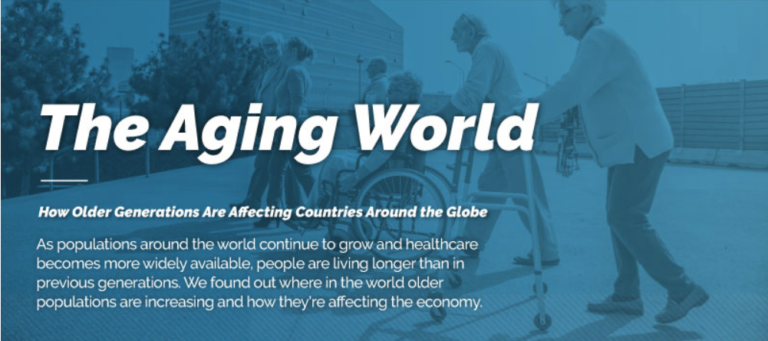IBM Watson Health: Transforming Healthcare
Watson Health: Empowering Patients and Transforming Healthcare
There was an interesting decision to make within IBM about what to call a new business organization that we’re announcing today [4/13/2015]. Should it be named Watson Health or Watson Healthcare? [emphasis added]
“Health” is an aspiration, for individuals and society. “Healthcare” describes an industry primarily focused on treating diseases.
While healthcare is essential, it represents just one of many factors that determine whether people live long and healthy lives. Some other critical factors are genetics, geography, behaviors, social/environmental influences, education, and economics. Unless society takes all of these factors into account and puts the individual at the center of the healthcare system, we won’t be able to make large-scale progress in helping people feel better and live longer. So, IBM Watson Health it is.
The name-choice matters. It signals that we and our partners in the healthcare sphere share an idea about the relationship between health and healthcare. We believe that by using data and technologies in powerful new ways and putting the individual at the center it’s possible to improve the quality of care, improve the “user” experience, deepen engagement between organizations and individuals, and reduce costs and waste.
I have been wrestling with these imperatives through my entire career, first as a National Health Service Corps physician serving underserved, high-need communities in Washington, DC and Baltimore and, more recently, in leadership positions at the US Health Resources and Services Administration, the National Institutes of Health and IBM. So I have viewed them from a variety of perspectives–those of physicians, researchers, government, employers, and, of course, personally.
One of the shortcomings of old-fashioned healthcare was that it treated the individual as a passive object. The word “patient,” a person who waits patiently for others to take care of them, indicates the powerlessness of individuals in the face of a complex system designed to treat them and pay for their treatment.
People want to be treated like individuals and to participate more actively in their healthcare. Doctors and nurses want to help people live healthier lives to prevent health problems, and to make healthcare more personal.
Another challenge is the fact that the healthcare system has been highly fragmented. While health information grows and is rapidly being digitized, the participants in the system–including physicians, healthcare delivery organizations, drug makers, insurance companies, employers, governments, and the patients–can’t share information and insights as readily as they would like to. In fact, a lot of the most valuable knowledge is tucked away in these different silos, especially the doctors and the patients who are at the core of the key, trusting relationships in healthcare.
Today, society is able to address these problems in powerful new ways because of advances in data availability, analytics, and connectivity. The emergence of Big Data enables us to gather and combine a wide variety of information, everything from individual genetics and personal health records to environmental conditions and studies of large populations over long periods of time. Analytics tools, including cognitive systems such as Watson, make it possible for us to understand all of the factors affecting health much more deeply so all the participants in the healthcare system, including the patients, can make better decisions. Cloud computing makes it easier for all parties to share and access information. And a new generation of mobile devices–including fitness trackers and other home monitoring devices–enables people to gather data about themselves and connect with health advisors and physicians anywhere, anytime.
These technologies are all essential parts of the new Watson Health business, dedicating at least 2,000 consultants, medical practitioners, technology developers and researchers to design, implement and accelerate the adoption of Watson Health products and services. It’s another example of IBM’s evolution as a company that helps transform industries and takes on society’s biggest challenges.
Here are the key elements of our strategy:
- Analytics. IBM’s Watson cognitive technologies are powerful insight-producing tools for physicians, healthcare delivery systems, pharmaceutical researchers and other health professionals. Now we’re adding to our technology portfolio by acquiring Cleveland-based Explorys and Dallas-based Phytel, two leaders in applying Big Data and analytics to improve the quality of healthcare.
- Data sharing. A new cloud-based open platform, Watson Health Cloud, will offer a foundation for data sharing across the entire spectrum of the healthcare and life sciences ecosystem, including doctors, researchers, insurers and patients–enabling all of them to share information that when analyzed could lead to better, faster, and more cost-effective decisions that improve peoples’ lives The information will be highly secure and patient’s names will be de-identified to allay privacy concerns.
- Partnerships. In addition to sharing data, it’s critical for participants in the healthcare system to combine their expertise and resources to create technology-based solutions to health and healthcare problems. Today, we’re announcing three such partnerships.
With Apple, we’re applying cloud and analytics expertise to Apple’s HealthKit apps for individual health management and ResearchKit tools for connecting medical researchers with individuals who are willing to share information.
With Johnson & Johnson, we’ll create intelligent coaching systems for physicians and nurses using Health Cloud and Watson technologies.
With Medtronic, we’re developing personalized care systems for people with diabetes. By combining sophisticated monitoring systems with analysis of an individual’s health factors, they’ll be able to take better care of themselves at home.
The medical community is one of the earliest adopters of Watson cognitive computing technology. IBM has collaborated with leading health care organizations such as Memorial Sloan Kettering Cancer Center, University of Texas MD Anderson Cancer Center, the Cleveland Clinic, the Mayo Clinic, and the New York Genome Center to explore the ways in which these technologies can transform how medicine is practiced and taught.
This early work has shown us the value of building an ecosystem of connected, like-minded organizations. Now, we foresee a new era of collaboration that will empower individuals with key data-driven insights, transform the healthcare system, and lead to a democratization of health and wellness.
About the Author
Kyu Rhee, MD, MPP, serves as the vice president of Integrated Health Services at IBM, where he has direct global responsibilities for health, safety, medical, and health benefits design and strategy services. Prior to joining IBM, Rhee was chief public health officer at the Health Resources and Services Administration. He also served as the director of the Office of Innovation and Program Coordination at the National Institutes of Health, where he led numerous initiatives related to health disparities, innovation, and partnerships. He was also chief medical officer of Baltimore Medical System, Inc., and served five years as a National Health Service Corps scholar and medical director at Upper Cardozo Health Center, the largest community health center in Washington, D.C. Rhee received his medical degree from the University of Southern California. He also holds a master’s degree in public policy from the John F. Kennedy School of Government, Harvard University, with a concentration in health care policy.
Related News This Week:
- IBM Watson targets cancer and enlists prominent providers in the fight
- IBM’s Watson computer can now do in a matter of minutes what it takes cancer doctors weeks to perform
- IBM in Healthcare: Deja Vu or Something New?
- IBM’s big bet on Watson is paying off with more apps and DNA analysis



IBM TRIES TO SELL WATSON HEALTH AGAIN (Axios, 1/5/2022) Here’s my response:
Sell Watson for 25 cents on the dollar? What a waste!
Impatience – I spent 30 years at IBM and saw many other examples of the company investing in promising markets only to exit later, essentially giving that market to its competition.
Relational Database – IBM invented it and the SQL language before Oracle took that over.
Personal Computers – IBM’s open architecture essentially created the PC market, resulting in dozens or hundreds of clones. But IBM forgot what made it great (innovation) and later started asking retailers like BestBuy what new features their next generation PCs should have. That meant they were getting the same advice as their clone competition and signaling the end of their ability to innovate.
ThinkPad – The company sold IBM PC Division but kept the ThinkPad brand, which included features coming out of IBM Research, including the TrackPoint pointing device and accelerometers that sense a PC falling and retracting disc arms to prevent contact with the disc surface upon impact with the ground. Then, of course, IBM sold ThinkPad to Lenovo, which continues as a major PC brand in the enterprise space that IBM coveted and once owned.
OS/2 – IBM spent millions developing this multitasking PC operating system and millions more to introduce OS/2 Warp for the consumer market. It realized corporate workers wanted to use the same operating system at home and work and would buy their home PC preloaded with Windows preinstalled. Yes, IBM also abandoned OS/2.
Consumer Division – After much prodding from sales teams close to the customer and understanding their needs, IBM created an entire division to delight the biggest influencer of corporate IT – the end user. That included an entry into the emerging Smart Home market with IBM Home Director. But even though the company had developed leading-edge technology, they sold it off and later Consumer Division too.
Research – Over and over I saw IBM waste millions or billions developing innovative technologies that often came from IBM Research before those strategic investments were later squandered by corporate bean counters. They apparently saw cutting expenses as the quickest way to raise profits, rather than developing new products and markets. Gone then was basic research that companies like IBM and AT&T were known for, and new research projects had to be tied to specific products.
As a retired IBM technologist and market strategist receiving a pension, I hate to be too critical, but it seems well deserved. IBM Watson (and its artificial intelligence base) is just the latest example. It makes me truly sad and also makes me fear for the future of our nation. That’s because I see the same mindset in other big corporations that have lost their way.
OTHER RELATED ARTICLES:
Boyhood — An excellent article in New York magazine. “Watson was just 4 years old when it beat the best human contestants on Jeopardy! As it grows up and goes out into the world, the question becomes: How afraid of it should we be?”
Six ways IBM is putting Watson to work in hospitals (MobileHealthNews)
Can An Algorithm Diagnose Better Than A Doctor? is an excellent article exploring if artificial intelligence can solve doctor shortages. Will it be able to replace the art of making a correct diagnosis? Not anytime soon, the author concludes, but that’s without factoring in the exponentially accelerating pace of tech, or the fact that IBM Watson can serve as an expert assistant to not just doctors, but nurses and even parents. (MedicalFuturist)
Artificial Intelligence Will Redesign Health Care — With several good videos, MedicalFuturist.com explores the unimaginable potential of Artificial intelligence, especially in healthcare. The problem with these articles is they see such progress as a destination rather than as an unending journey, where the pace of tech innovation keeps advancing exponentially.
Artificial intelligence positioned to be a game-changer — CBS News on IBM Watson in healthcare
IBM Watson: Not So Elementary FORTUNE Magazine interview with the new head of IBM’s Watson Group
Doctors say IBM Watson is nowhere close to being the revolution in cancer treatment it was pitched to them as (Business Insider)
Inside IBM’s Bold Vision For AI: 7 Strategic Insights From CEO Ginni Rometty (Forbes)